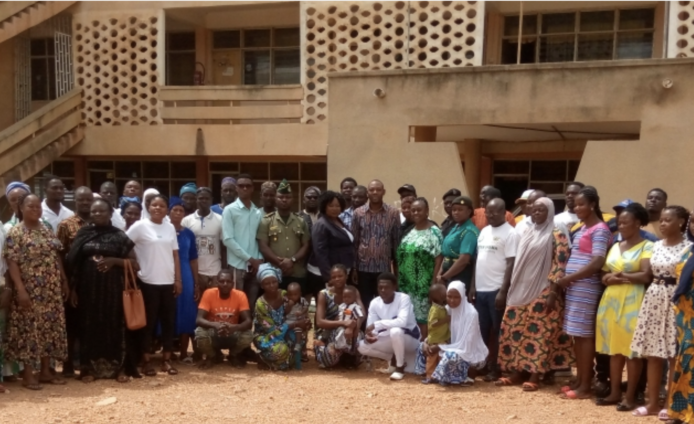The District Chief Executive (DCE) of Bawku West in the Upper East Region, Daniel Anania Atampuba, has called on factions involved in various conflicts in the region to embrace peace.
He said the conflicts in the region, particularly the protracted Bawku conflict, were spreading beyond Bawku to other parts of the region and the threat of violent activities of extremists was adversely affecting development.
Mr Atampuba underscored collective efforts to address such issues.
He said: “The conflict in Bawku has affected most of the districts in the Bawku zone. Quite apart from that, the violent extremists’ activities in Burkina Faso have a potential ripple effect on our District, and it is our responsibility to come together and foster peace.
“It is time to say, let’s put our guns down and dialogue and share ideas because taking the gun is not the way to express your dissatisfaction.”
The DCE made the remarks when he addressed stakeholders at a two-day capacity-building workshop organised by the Upper East Regional Peace Council on political vigilantism, advocacy, constitutional rights and responsibilities, among others.
The stakeholders, including political party activists, opinion leaders, youth groups, and other minority groups, were drawn from Widnaba, Sapelliga, and Kopella communities of the Bawku West District.
It is being funded by the United Nations (UN) Peacebuilding Fund through the United Nations Development Programme (UNDP) and the United Nations Population Fund (UNFPA) and is being implemented in the Bawku West, Garu, and Bongo Districts.
The project aims at building community resilience towards preventing violence and promoting peace for conflict management, resolution, and social cohesion.
Madam Jenet Dedei Sarney-Kuma, the Director of Capacity Development and Outreach, at the National Peace Council, noted that though some of the conflicts that existed in the communities were not difficult to manage, the managers of such conflicts sometimes lacked the required knowledge and skills to resolve them.
She said this necessitated the need for the capacities of the stakeholders to be built to help them manage conflict among themselves, recognize the rights of others and their responsibilities, and champion peace for national development.
“This knowledge they gain can be applied to manage election disputes, so we are believing that as we build their capacities, we will have fewer election troubles and general disputes within the district,” she added.
Awinbon Yakubu, a youth leader in the Sapelliga community, said the workshop had well positioned him to help manage conflict in his community as it had exposed him to a lot of issues concerning conflict management and human rights that he previously did not know.
Job Akpalimtera Nyaba, the Assemblyman from the Widnaba community, lauded the efforts of the Peace Council for building peace and called on the youth to be peace advocates.
Edmond Alagpulinsa, a Human Rights Officer and facilitator of the workshop urged the stakeholders to be circumspect about cultural practices that violated the rights and dignity of others, as they were punishable by law.
ALSO READ:

